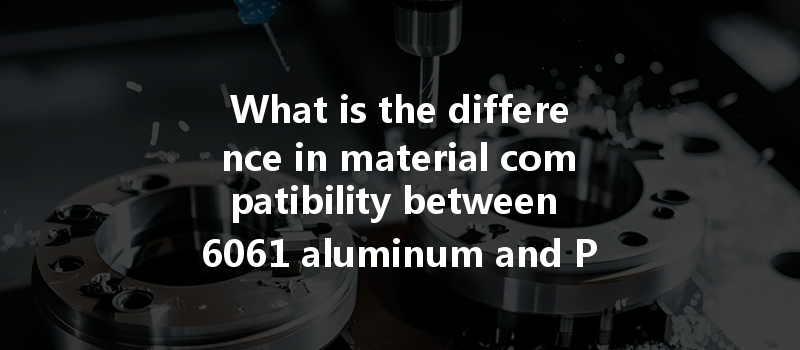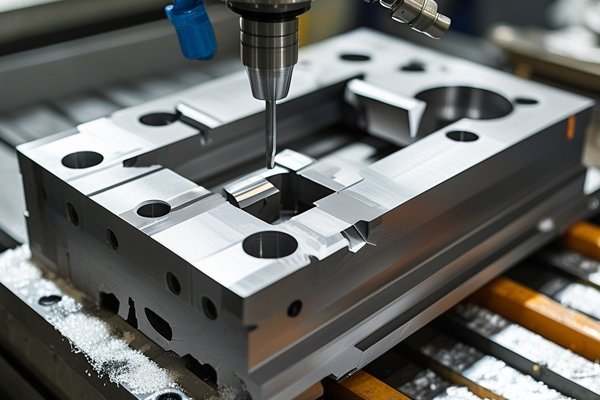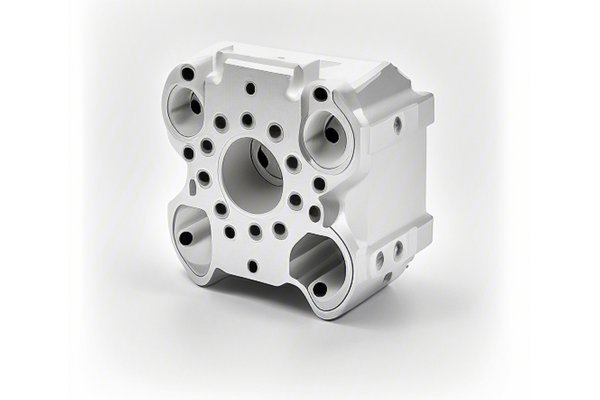In the realm of CNC (Computer Numerical Control) machining, understanding material compatibility is crucial for achieving optimal results. With the diverse range of materials available, each with its unique properties, selecting the right one can significantly impact the performance, durability, and functionality of machined parts. Among the materials frequently utilized in various industries are 6061 aluminum and PEEK (polyether ether ketone) plastic, both known for their exceptional characteristics. This article aims to explore the differences in material compatibility between these two materials within the context of CNC machining. As industry leaders at YL Machining, we strive to provide clarity on the intricacies of material selection to guide manufacturers in making informed decisions.
What is CNC Machining?
CNC machining is a manufacturing process that uses computer-controlled machinery to automate the movement of different tools and equipment. This technology is widely used for creating precise and intricate parts from various materials, including metals, plastics, and composites. The process begins with a CAD (Computer-Aided Design) model, which guides the CNC machine to cut, drill, mill, or engrave the material, resulting in components that meet exact specifications. The evolution of CNC machining has revolutionized the production landscape, increasing efficiency while maintaining high-quality standards.
Overview of 6061 Aluminum
6061 aluminum is one of the most popular alloys among engineers and manufacturers due to its excellent mechanical properties and versatility. Composed primarily of aluminum (90.7–94.7%), with additions of magnesium (0.8–1.2%) and silicon (0.4–0.8%), this alloy belongs to the 6000 series and is classified as a heat-treatable aluminum alloy, which enhances its strength and durability.
Key Properties of 6061 Aluminum:
Overview of PEEK Plastic
PEEK (polyether ether ketone) is a high-performance thermoplastic known for its extraordinary properties, including thermal stability, chemical resistance, and mechanical strength. Often used in demanding applications, PEEK can withstand high temperatures and harsh environments.
Key Properties of PEEK:
Material Compatibility: 6061 Aluminum vs PEEK Plastic

When it comes to machinability, 6061 aluminum is generally easier to machine than PEEK due to its physical properties. Aluminum allows for high-speed machining and tends to produce better surface finishes. In contrast, while machining PEEK is feasible, it requires specific conditions to avoid workpiece melting or tool wear, mainly due to its high thermal resistance. CNC machines should be equipped with specialized tooling to handle the unique requirements of PEEK.
The thermal properties of the two materials reveal a significant contrast. 6061 aluminum conducts heat efficiently, making it an excellent choice for applications requiring heat dissipation. Conversely, PEEK’s high thermal resistance means it can withstand high temperatures without degradation. This difference is crucial when considering applications involving heat exposure, as PEEK is suitable for environments that could compromise aluminum components.
Cost is often a decisive factor when choosing between materials. 6061 aluminum is relatively inexpensive and offers excellent strength-to-weight ratios, making it economically viable for a variety of applications. PEEK, on the other hand, is significantly more expensive, reflecting its advanced performance characteristics. When selecting a material, manufacturers must balance performance needs against budget constraints.
Material compatibility is inherently linked to specific applications. 6061 aluminum is frequently used in automotive components, structural frameworks, and marine equipment due to its strength, lightweight nature, and corrosion resistance. In contrast, PEEK finds its niches in aerospace engineering, medical devices, and food processing equipment, where high-performance requirements come into play. Applications may involve parts exposed to extreme conditions, where PEEK’s advantages truly shine.
Considering the environmental footprint of materials, both 6061 aluminum and PEEK present unique challenges. Aluminum, being a highly recyclable material, poses less of an environmental concern through its lifecycle. Conversely, PEEK, as a synthetic polymer, is more challenging to recycle, raising considerations in sustainable manufacturing practices. Businesses must evaluate the environmental implications of their material choices to align with broader sustainability goals.
How to Choose the Right Material?
The decision to use 6061 aluminum or PEEK plastic in CNC machining should depend on several key factors:
In summary, selecting the appropriate material for CNC machining is vital in influencing product quality and functionality. 6061 aluminum and PEEK plastic each present unique properties that cater to specific applications within diverse industries. By understanding the differences in compatibility, machinability, costs, and long-term implications of these materials, manufacturers can make informed decisions to enhance product performance while optimizing resources. At YL Machining, we are dedicated to providing expertise in material selection and machining capabilities, ensuring our clients are equipped with the knowledge necessary to achieve excellence in their manufacturing processes.
By approaching material compatibility with a thorough understanding of CNC machining principles, businesses can effectively navigate the challenges of today’s complex manufacturing landscape, fulfilling their production requirements with precision and efficiency.






